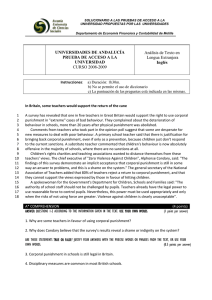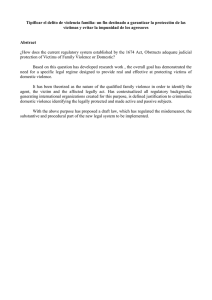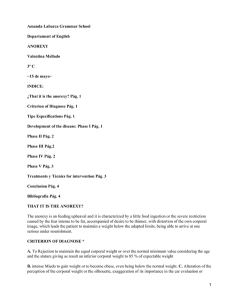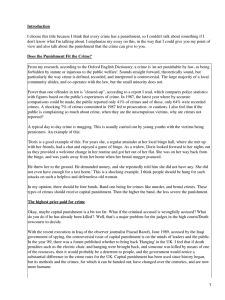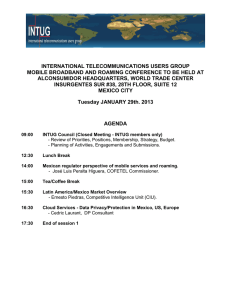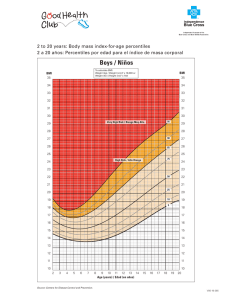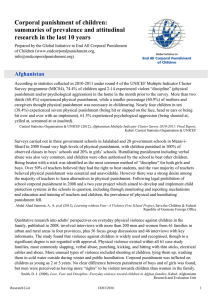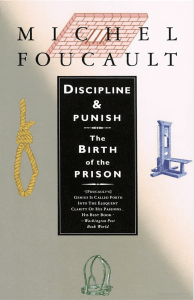Global Initiative to End All Corporal Punishment of Children
Anuncio
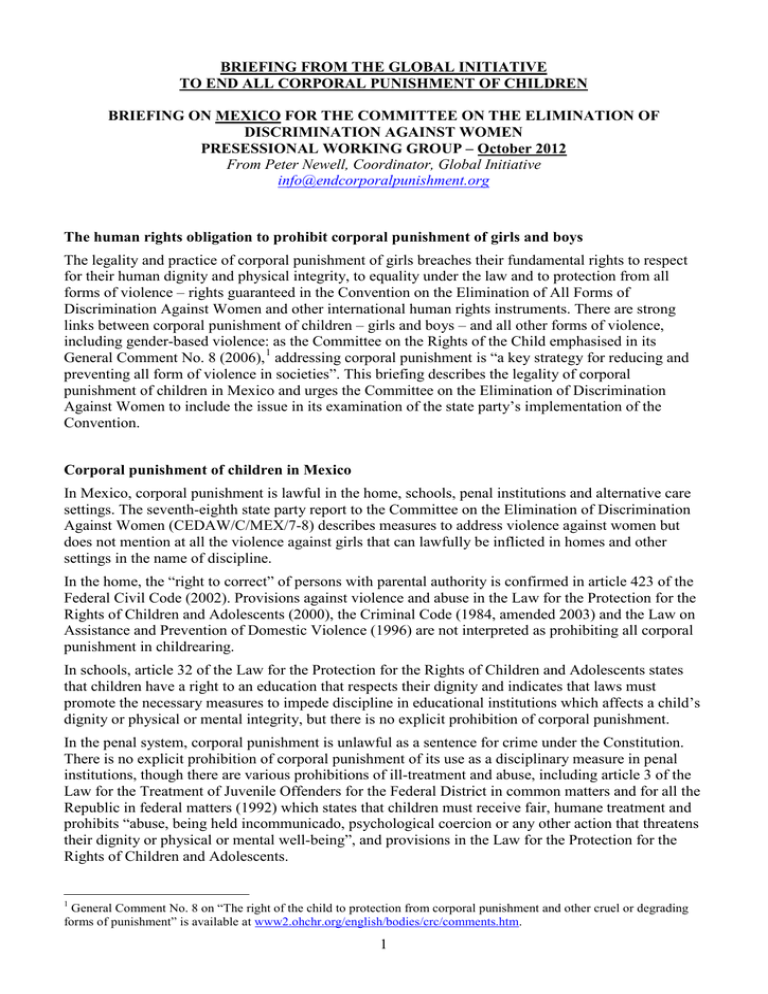
BRIEFING FROM THE GLOBAL INITIATIVE TO END ALL CORPORAL PUNISHMENT OF CHILDREN BRIEFING ON MEXICO FOR THE COMMITTEE ON THE ELIMINATION OF DISCRIMINATION AGAINST WOMEN PRESESSIONAL WORKING GROUP – October 2012 From Peter Newell, Coordinator, Global Initiative [email protected] The human rights obligation to prohibit corporal punishment of girls and boys The legality and practice of corporal punishment of girls breaches their fundamental rights to respect for their human dignity and physical integrity, to equality under the law and to protection from all forms of violence – rights guaranteed in the Convention on the Elimination of All Forms of Discrimination Against Women and other international human rights instruments. There are strong links between corporal punishment of children – girls and boys – and all other forms of violence, including gender-based violence: as the Committee on the Rights of the Child emphasised in its General Comment No. 8 (2006), 1 addressing corporal punishment is “a key strategy for reducing and preventing all form of violence in societies”. This briefing describes the legality of corporal punishment of children in Mexico and urges the Committee on the Elimination of Discrimination Against Women to include the issue in its examination of the state party’s implementation of the Convention. Corporal punishment of children in Mexico In Mexico, corporal punishment is lawful in the home, schools, penal institutions and alternative care settings. The seventh-eighth state party report to the Committee on the Elimination of Discrimination Against Women (CEDAW/C/MEX/7-8) describes measures to address violence against women but does not mention at all the violence against girls that can lawfully be inflicted in homes and other settings in the name of discipline. In the home, the “right to correct” of persons with parental authority is confirmed in article 423 of the Federal Civil Code (2002). Provisions against violence and abuse in the Law for the Protection for the Rights of Children and Adolescents (2000), the Criminal Code (1984, amended 2003) and the Law on Assistance and Prevention of Domestic Violence (1996) are not interpreted as prohibiting all corporal punishment in childrearing. In schools, article 32 of the Law for the Protection for the Rights of Children and Adolescents states that children have a right to an education that respects their dignity and indicates that laws must promote the necessary measures to impede discipline in educational institutions which affects a child’s dignity or physical or mental integrity, but there is no explicit prohibition of corporal punishment. In the penal system, corporal punishment is unlawful as a sentence for crime under the Constitution. There is no explicit prohibition of corporal punishment of its use as a disciplinary measure in penal institutions, though there are various prohibitions of ill-treatment and abuse, including article 3 of the Law for the Treatment of Juvenile Offenders for the Federal District in common matters and for all the Republic in federal matters (1992) which states that children must receive fair, humane treatment and prohibits “abuse, being held incommunicado, psychological coercion or any other action that threatens their dignity or physical or mental well-being”, and provisions in the Law for the Protection for the Rights of Children and Adolescents. 1 General Comment No. 8 on “The right of the child to protection from corporal punishment and other cruel or degrading forms of punishment” is available at www2.ohchr.org/english/bodies/crc/comments.htm. 1 Corporal punishment is lawful in other institutions and forms of childcare. Recommendations by human rights treaty monitoring bodies The Committee on the Rights of the Child has twice recommended that Mexico explicitly prohibit corporal punishment of children in all settings, including the home – in its concluding observations on the state party’s second report in 1999 (CRC/C/15/Add.112, para. 25) and on the third report in 2006 (CRC/C/MEX/CO/3, para. 36). Mexico was examined under the Universal Periodic Review process in 2009. The Government accepted the recommendations to fully protect children from corporal punishment. 2 We hope the Committee on the Elimination of Discrimination Against Women will raise the issue of corporal punishment of girls in its List of Issues for Mexico, in particular asking what legislative and other measures have been taken by the state party to prohibit and eliminate corporal punishment, to ensure girls enjoy their rights as human beings to respect for their human dignity and physical integrity and to equal protection under the law, including in homes and schools. In light of General Recommendation No. 19 on Violence against women adopted by the Committee on the Elimination of Discrimination Against Women in 1992, of the links between corporal punishment of children and all other forms of violence including gender-based violence, and of the Committee on the Rights of the Child’s General Comment No. 8 (2006), we hope the Committee will subsequently recommend to the state party that explicit prohibition of all corporal punishment of children be enacted in relation to all settings, including the home, as a matter of urgency. Briefing prepared by the Global Initiative to End All Corporal Punishment of Children www.endcorporalpunishment.org; [email protected] September 2011 2 29 May 2009, A/HRC/11/27, Report of the Working Group on the Universal Periodic Review: Mexico, para. 93(30) 2
